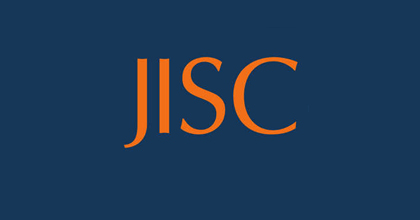Universities and researchers will be able to improve the efficiencies of their research and remove obstacles in their collaborations, thanks to a new strategic partnership between the UK and Canada.
The Consortia Advancing Standards in Research Administration Information (CASRAI), a community-driven membership organisation founded in Canada, has invited JISC to be its first UK member. The two organisations will work together to advance a standard data dictionary for research and to advance a common global approach to research interoperability.
CASRAI’s vision is for all research teams around the world to have a single authoritative and reusable ‘file’ on themselves and their projects and be able to quickly produce and exchange any information needed, without retyping.
David Baker, CASRAI Executive Director, explains, “The research community in every country captures largely the same types of data. But three obstacles divide us: meaning, structure and format. These include the classic ‘lift vs. elevator’ problem – same concept with different labels – and the persistent problems of clashing data elements and software systems that can’t speak to each other. A standard dictionary implemented in our systems and exchanges removes these obstacles while keeping freedom of choice in implementation.
“Thanks to this leadership from JISC, we look forward to bringing UK subject-matter expertise and perspective to this evolving international dictionary. In Canada, leading organisations (funders, universities, vendors) have come together to collaboratively advance this mandate. We hope to mirror this broad representation within the UK community.”
In both Canada and the UK research has shown much time is spent administrating rather than conducting research. This was confirmed by an American survey in 2009 that found an average of 42% of research time was spent on administration.
Josh Brown, JISC programme manager, adds, “JISC has a strong history of working with UK universities to deliver time and cost savings within the research administration process and contribute towards making research accessible, discoverable and easier to share.
“We know that one way to increase the visibility of research internationally and increase efficiencies in the research process is to establish a common language for research. This is so researchers, funders and universities have the opportunity to reduce their research administration and concentrate on the job of delivering their work. In just one example, imagine a universal ‘auto-correct’ that resolves terminologies between countries and disciplines and frees the researchers to focus on the concepts. We are delighted to be invited to be part of CASRAI to see how we can help to make this happen.”
The first areas of focus for this partnership will be research impact and research datasets. CASRAI is already an active participant in the JISC-funded DESCRIBE project on research impacts and the partnership will build on that collaboration.
For datasets, JISC and CASRAI will work together to form a joint UK/Canada committee (with associated review circle) to explore how we can incorporate the discovery and accessibility of scientific datasets into the standard dictionary.


































